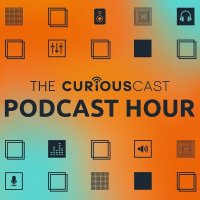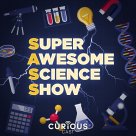
Artificial intelligence has become a natural part of our existence from voice recognition to making playlists to determining which driving route is the fastest. But AI still hasn’t become an integral part of our health.
While AI does appear in some of our applications, such as those exercise apps on your smartphone, it has not yet been fully accepted as a replacement for doctors and nurses. On this week’s Super Awesome Science Show, we’re going to explore how AI is involved in health care and the pitfalls that prevent our complete acceptance of the technology in public health.
First, we’re going to learn about a sector of health in which AI is making a difference: diagnosis. We’ll talk with Sally Baxter, a postdoctoral scholar at the University of California San Diego. She has been exploring how AI can be used to help doctors determine what is wrong with an individual to improve accuracy and speed to treatment.
We’ll then explore how AI may be used to help change society through what is known as health intelligence. Our guest is David Buckeridge, a professor of epidemiology and biostatistics at McGill University. He focuses on the use of technology in public health and will explain how the information we gain from our daily social media activities may help gather intelligence into what a broader society is doing and how to make alterations to improve our wellness.
In our SASS Class, we’ll discuss why AI still hasn’t been fully accepted for our health care: It all comes down to the idea that AI, no matter how human it may seem, is still being run by a central processor inside a black box. We’re going to speak with Alex John London, the Director of the Center for Ethics and Policy at Carnegie Mellon University. He has been exploring how we understand that black box and why a lack of transparency both visually and in calculations can lead to concern and distrust.
If you enjoy the Super Awesome Science Show, please take a minute to rate it on Apple Podcasts, and be sure to tell a friend about the show.

Get weekly health news
Thanks to you, we’ve won a Canadian Podcast Award for Outstanding Science and Medicine Series. We have been changing the way the world sees science and it is definitely for the better. Let’s keep the awesome momentum going together!
Contact:
Twitter: @JATetro
Email: thegermguy@gmail.com
Guests:
Sally Baxter
Web: https://profiles.ucsd.edu/sally.baxter
David Buckeridge
Web: http://mchi.mcgill.ca/about-us/surveillance/
Twitter: @davidbuckeridge
Alex John London
Web: https://www.cmu.edu/dietrich/philosophy/people/faculty/london.html
Twitter: @AlexJohnLondon
Subscribing’s easy! Here’s how…

- Open the Apple Podcasts app, search for “Super Awesome Science Show (SASS)” and select it from the list of results.
- Once on the Super Awesome Science Show (SASS)’s page, click the “subscribe” button to have new episodes sent to your mobile device for free.
- Click the name of an episode from the list below to listen.

- Open the Google Podcasts app, search for “Super Awesome Science Show (SASS)” and select it from the list of results.
- Once on the Super Awesome Science Show (SASS)’s page, click the “subscribe” button to have new episodes sent to your mobile device for free.
- Click the name of an episode from the list below to listen.
















Comments